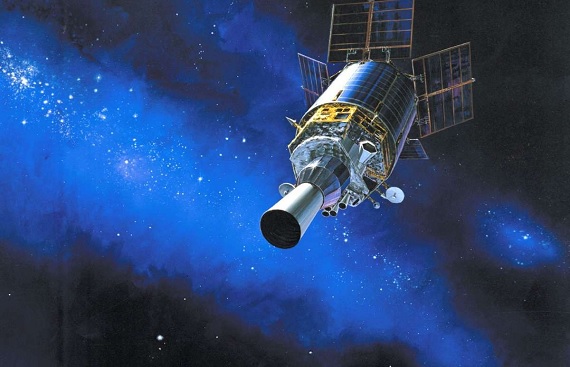Global Orbit Opportunities Boost Indian Satcom Industry
By
siliconindia | Monday, 06 May 2024, 04:03 Hrs

India has made a landmark decision to open up its satellite and space sector to private players by allowing local satellite companies to utilize foreign orbital resources for the first time. This move is expected to significantly boost private sector participation in India's space and satellite industry and enhance competition in the sector.
Previously, Indian satellite companies were restricted to using only Indian orbital resources, which were often limited and expensive. However, with the new guidelines issued by the national space regulator, IN-SPACe, Indian players can now tap into surplus international satellite capacities to deliver satellite communication (satcom) services at competitive rates within India.
Foreign orbital resources refer to non-Indian orbital slots and associated frequencies for operating satellites in space. These resources enable satellite companies to provide satcom services over specific countries or geographic regions. Under the new guidelines, Indian satellite companies need to apply to the International Telecommunication Union (ITU) in Geneva for permission to use non-Indian orbital resources. However, they also require authorization from IN-SPACe to ensure that the use of foreign orbital resources for satellite internet services in India does not cause interference with other satellite networks.
The decision to allow access to foreign orbital resources is expected to usher in much-needed competition in the satcom sector, leading to better services at affordable prices for consumers. T V Ramachandran, President of Broadband India Forum (BIF), hailed the government's decision, stating that it would benefit end-consumers by providing them with improved services at competitive prices.
The new guidelines issued by IN-SPACe allow Indian entities to seek authorization for the establishment and operation of satellites or constellations in geostationary satellite orbit (GSO) and/or low-earth orbit/medium earth orbit (LEO/MEO) using non-Indian orbital resources for communication services. This flexibility will enable interested satcom players to deliver satellite broadband services in India more effectively.
Pranav Roach, President of Hughes Network Systems India Ltd, emphasized that access to foreign orbital resources with suitable IN-SPACe authorizations would provide greater flexibility to satcom players in delivering satellite broadband services in India.
The permission to access non-Indian orbital resources is expected to encourage more Indian companies to enter the space services sector. With access to global capacities, these companies will have more commercial options to deliver satellite broadband services in India. This move is particularly beneficial for companies planning to enter the capital-intensive satellite business, as they no longer need to worry about safely parking their satellites in space after launching them into orbit.
These developments come at a time when several global players, including Elon Musk's Starlink, Bharti-backed Eutelsat OneWeb, Reliance Jio, Amazon Kuiper, UK-based Inmarsat, and the Tatas, are eyeing India's nascent satcom market, which has high growth potential.
However, it's essential to note that as per the latest eligibility criteria, Indian companies seeking authorization to use foreign satellites with non-Indian orbital resources must transfer the right to use such orbital slots to the Indian administration over a predefined time period, following ITU guidelines. This ensures the effective management of radio spectrum and orbital resources at a global level by the ITU, preventing interference among global satellite systems.
